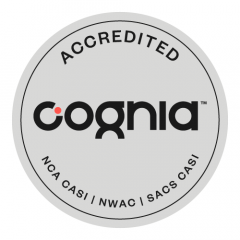3 Ways Early Childhood Programs Promote Independence

Early childhood programs are essential in laying the foundation for a child’s development, not just academically but also socially and emotionally. These programs serve as stepping stones that teach children the skills necessary to function independently. By integrating activities that foster self-reliance, children are better prepared to face future challenges. But how exactly do these programs promote independence among young learners? Let’s explore three ways these early education programs achieve this goal.
1. Building Confidence Through Choices
One crucial way early childhood programs promote independence is by encouraging decision-making. Children are given the opportunity to make choices regarding their activities, snacks, and even seating arrangements. This autonomy helps children learn the importance of decision-making and understand the consequences of their choices. Furthermore, it builds their confidence, as they see the impact of their decisions, however small. For instance, when children are allowed to choose which books to read or select their reading level, they not only develop literacy skills but also become more independent in their learning. According to recent NAEP test scores, 25 million children in the United States struggle to read proficiently, highlighting the need for programs that not only encourage academic skills but also empower children to learn independently.
2. Learning Through Play
Another strategy employed by these programs is building problem-solving skills through play-based learning. Activities such as puzzles, building blocks, and group games require children to strategize, negotiate, and collaborate. These exercises teach children how to approach challenges logically and creatively. By being actively involved in problem-solving situations, children develop resilience and the ability to think independently, skills that are invaluable throughout their educational journey and beyond.
3. Teaching Everyday Tasks and Lifelong Lessons
Lastly, early childhood programs teach self-help skills that promote independence. Basic tasks such as tying shoe laces, washing hands, or organizing their workstations are encouraged in classrooms. These self-help activities empower children to take charge of their own needs and daily routines. Mastering these life skills builds self-esteem and prepares children for more extensive responsibilities as they grow. In essence, when children feel capable of handling themselves, they are more likely to try new things and engage in learning opportunities.
Early childhood programs play a crucial role in fostering independence among young learners. By focusing on choice, problem-solving, and self-help skills, these programs equip children with tools that extend beyond the classroom. As we continue to face academic challenges, such as low literacy rates, it’s important to recognize and support programs that cultivate an independent spirit so our children can achieve success in all areas of life. If you’re seeking an early childhood educational setting that can promote independence in your little one, contact Key Point Christian Academy today!



